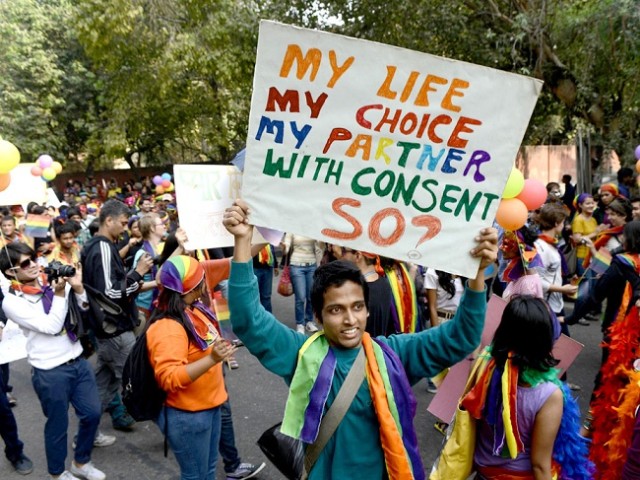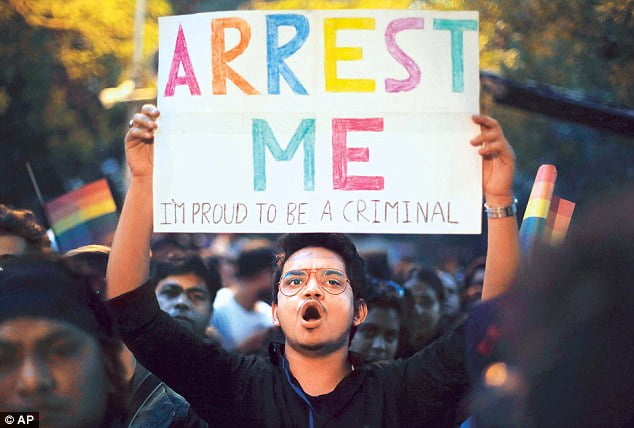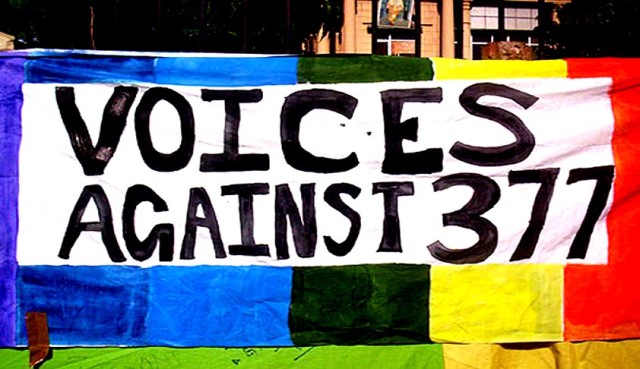We have a lot of problems in this country, and this law is building up a major one too. Most of you must already know the general idea behind the very scandalized Article 377, but there’s a lot more to it than what one gets to know in the first glance.
First of all, this is what the legal texts say, as in Chapter XVI, Section 377 of the Indian Penal Code, published in 1860,
“Whoever voluntarily has carnal intercourse against the order of nature with any man, woman or animal shall be punished with imprisonment for life, or with imprisonment of either description for term which may extend to ten years, and shall also be liable to fine.”
It is further explained in text as,
“Penetration is sufficient to constitute the carnal intercourse necessary to the offense described in this section.”
In easier (and cleaner) words, the law forbids any sexual activity apart from the ones undertaken for pro-creative reasons. As one can easily deduce, the law isn’t very specific and directive towards any particular group, but actually has a very wide effect-base because well, everybody does it, and not everybody wants kids. And so, ahem.
In addition to using strong words and rough statements, the law is misleading because of –
1. The subject of Consent:
The phrase, “whoever voluntarily…” takes into regard the imposed will of only one of the pair. The statement does not clarify the case in which the act is undertaken with the consent of both the partners, that whether or not it could be held against law.
According to the fundamental human rights of freedom and choice, the extent to which the government can intervene into such a matter is a question itself. Then, if both the partners have agreed mutually without any external pressure or limitation, can the government even raise the issue?
 Source – http://www.scoopwhoop.com/inothernews/section-377-repeal/
Source – http://www.scoopwhoop.com/inothernews/section-377-repeal/
2. Privacy of the individual(s).
Put in simple words, all incidents or acts that occur between people in their private space have nothing to do with the public, much less the government. Questioning something as personal as love-making, regardless of the gender of people involved, is violation of the basic right to freedom people have under our democratic regime.
3. Homosexuality:
While the statement doesn’t directly address the subject, it does oppose it in some way. The primary reason being, love-making or such similar acts between people belonging to the same gender is considered *unnatural* still. Many, in fact most of the suits against homosexual acts are filed under Code 377.
Well, grow up India.
 Source- http://www.dailymail.co.uk/indiahome/indianews/article-2524800/COURT-MARSHAL-One-reason-scrap-Section-377.html
Source- http://www.dailymail.co.uk/indiahome/indianews/article-2524800/COURT-MARSHAL-One-reason-scrap-Section-377.html
4. Bias under the name of Unnatural:
What’s unnatural for you, may not be for someone else. But is it as simple as that before law? Doesn’t seem like it.
A single statement cannot define such a thing for masses. Moreover, since there are no clear boundaries set by the statement, this is a factor leading to some major confusion. As far as the law dictates, the objective of act is solely to reproduce, which is certainly not the case today in the country, nor was it anytime before.
5. Sexuality cannot be:
Even after being the one involved, an individual has no direct choice about whom they’re attracted to sexually, how can then the state interfere? There cannot be a worse case of direct control exertion, as is the case.
In addition to these evident flaws, there also exist some loopholes in the law, the most abstract one being concerned with cases involving people with constructed gender, as in what category would they fall under? Moreover, since the law has created major problems for the homosexuals, there has been a significant amount of protests against the same, especially in the metropolitans of the country, where its impact is most profound.
 Source – http://www.livelaw.in/much-awaited-verdict-on-constitutionality-of-section-377-to-be-pronounced-by-supreme-court-today/
Source – http://www.livelaw.in/much-awaited-verdict-on-constitutionality-of-section-377-to-be-pronounced-by-supreme-court-today/
Now, even after having such strong pointers against the law, why hasn’t it been dropped?
It’s because of the fact that while creating problems for the metropolitan gentry of the country, the law has also helped in as many cases, if not more. Sexual assaults such as rape, cases of child molestation and even the very rare ones involving bestiality, as filed under 377. Being one of the most celebrated, or rather, well-known legal procedures, the cases are taken up seriously and resolved way early as compared to the time period it would’ve taken if 377 didn’t exist.
As the conclusion, what 377 needs is not eradication, but a major reform, in areas of whom all it should and should not include, the matter of individual’s choice and clarifications in terms of what personal space and boundaries mean to them.
By Snigdha Singh

































